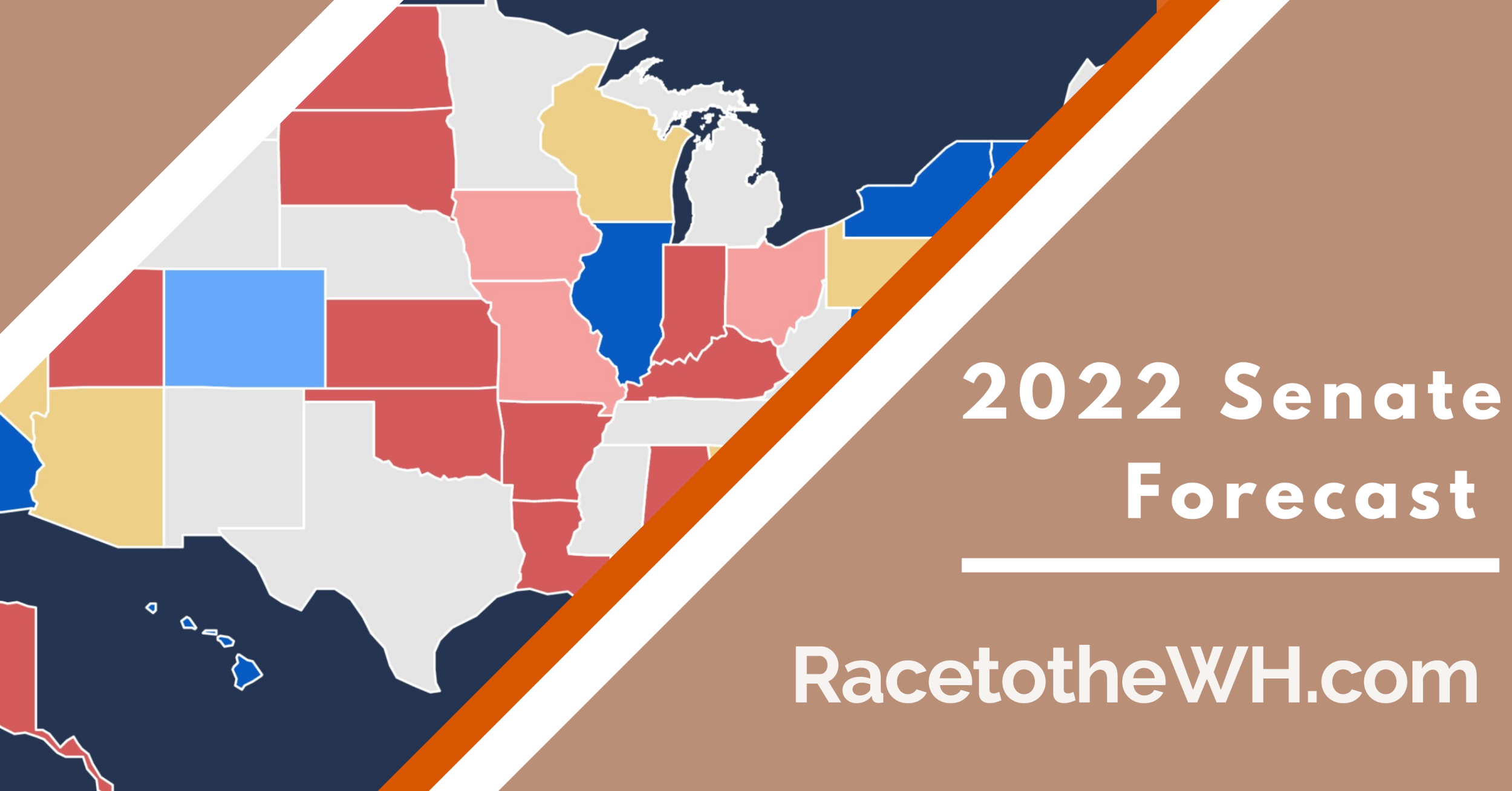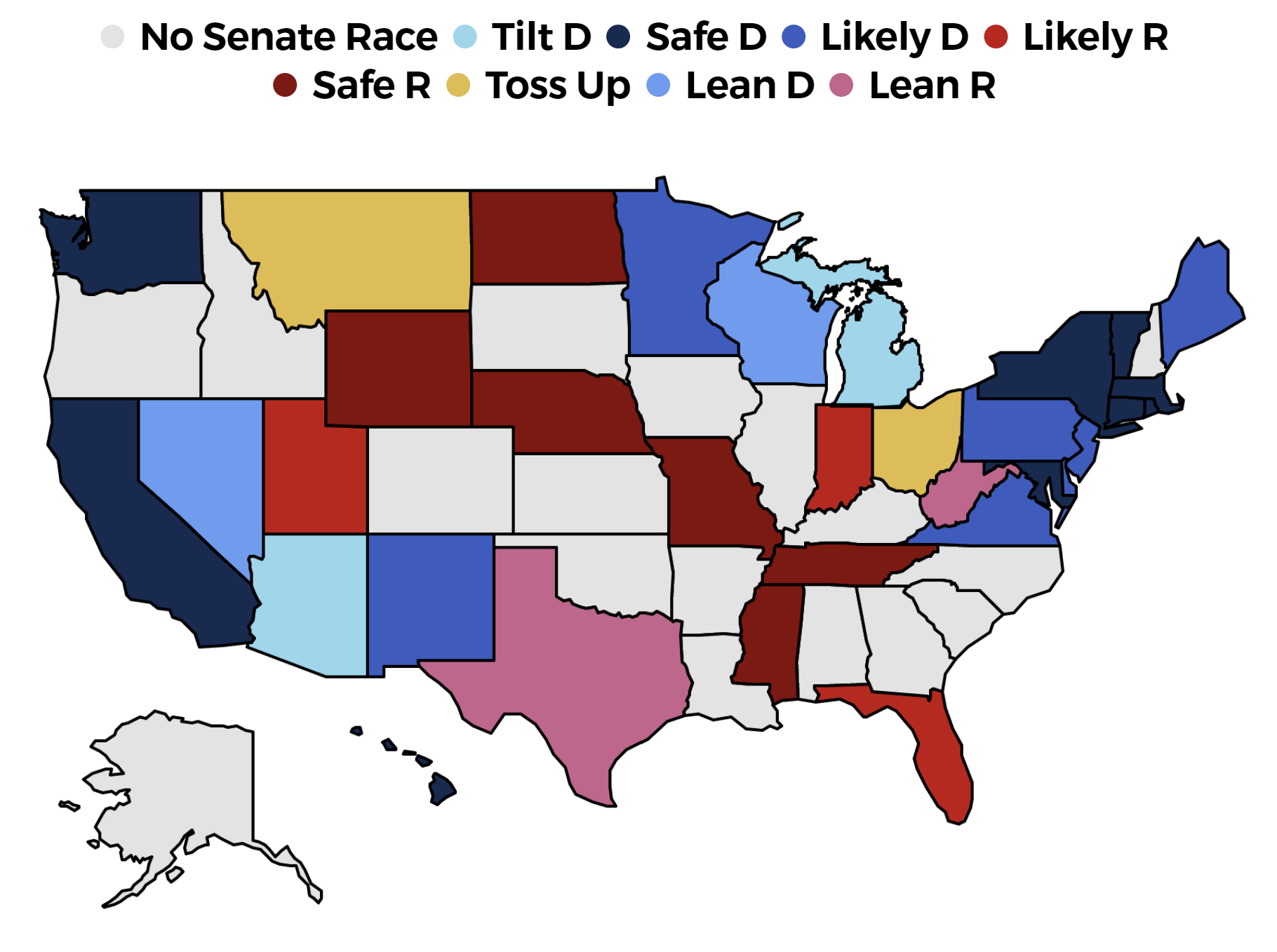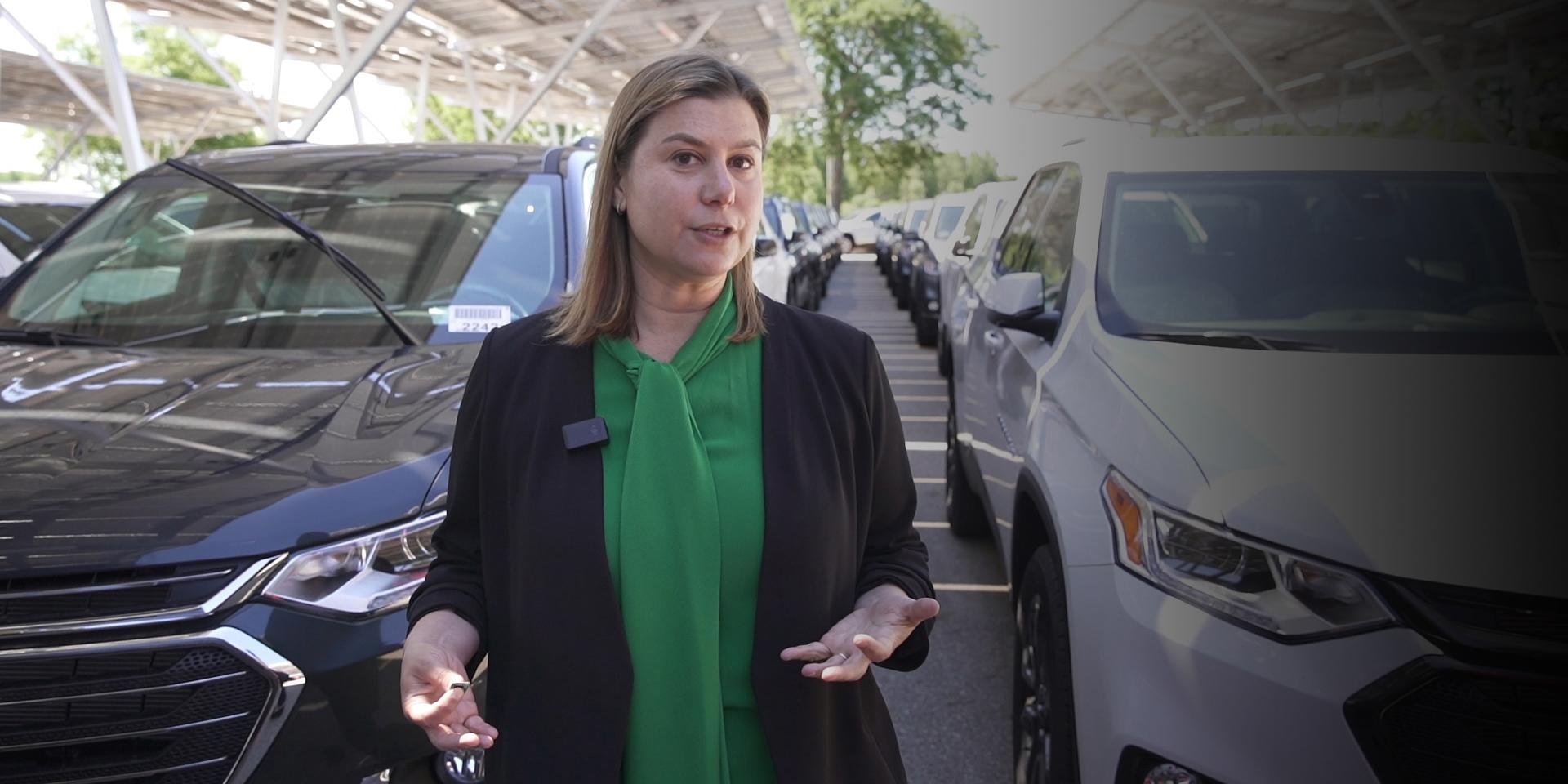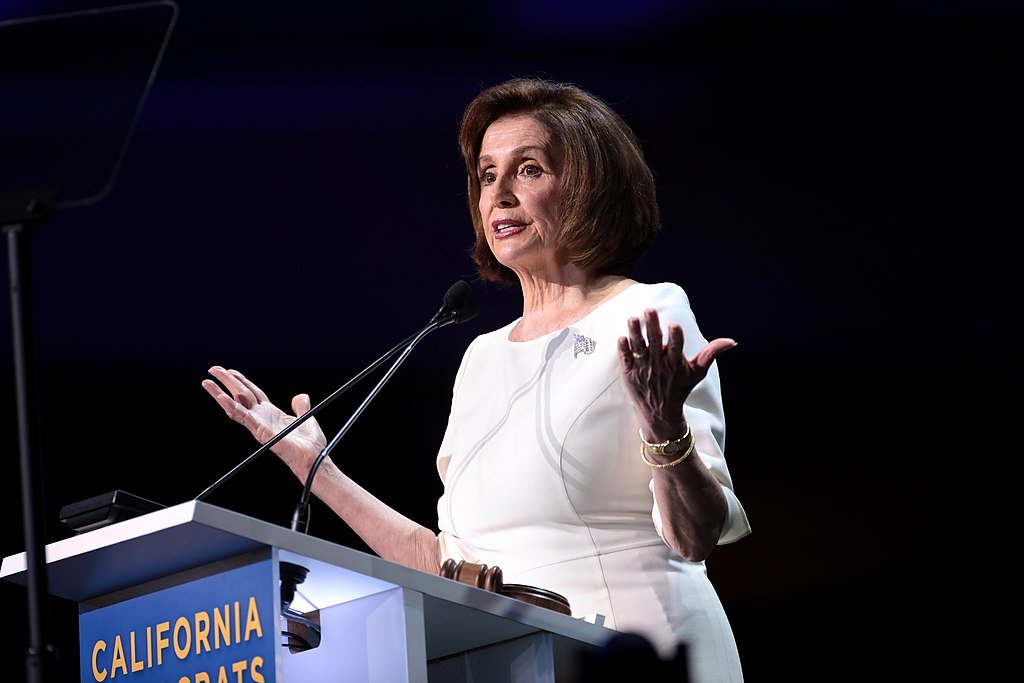Power Rankings - The Ten Most Competitive Senate Races in 2022
Updated: July 31st
Interactive Feature Created & Designed by Logan Phillips
Raphael Warnock’s victory in Georgia capped the rising surge of Democratic success in the Peach State, winning three of the most important statewide elections in 2020. However, repeating the feat in a midterm election could be difficult. Georgia provides Republicans with their best shot to take a Senate seat, although Warnock’s chances of victory are still above 50%. Photo credit: Wikipedia Commons, Public Domain
The Senate Majority in 2022 will be decided in a series of marquee matchups set in many of the very same swing states that played a staring role in the 2020 Presidential election. The RacetotheWH Senate Forecast shows that the ten seats most likely to flip parties are evenly divided between Democrats and Republicans. To retake the majority, Republicans will need to expand their ranks by one to secure 51 seats, while Democrats only need to preserve the status quo. This cycle, there are no incumbent Senators on either side of the aisle entering the race as serious underdogs, but many are just a few bad breaks away from early political retirement.
Democrats have slightly increased their odds of victory in a still extraordinarily competitive election cycle, as they have thus far had better success at recruiting their top candidates to run. That could change overtime, especially if Republicans can convince New Hampshire Governor Chris Sununu to run for the Senate.
In the graphics below, the Projected Margin refers to our Forecast prediction for the final margin of victory on election day. Chance of Winning refers to the number of times each party wins the state in 50,000 simulations of the election. To learn more, read our 2022 Senate Forecast.
Breakdown:
Democrats' odds of taking the Keystone state are on the rise, and they just became the narrow favorites to win the single most competitive Senate election in the 2022 cycle. The shift is a direct result of the candidates that have decided to launch their bids for their parties' nominations. The Democratic field is stacked with experienced candidates that have a history of successfully winning elections. Those types of candidates perform considerably better on average. In contrast, the Republican party has failed to recruit a single candidate that has ever won a single general election. That’s a heck of a gambit and a very real vulnerability.
Of course, it’s hardly a death sentence, and Republicans still have an excellent chance at holding onto the seat. After all, there are plenty of exceptions to the rule. Senator Pat Toomey had never won an election before he won a Senate Seat, and Raphael Warnock won a big upset in Georgia as a first-time candidate in 2022. Republicans also have two key advantages: First, the party out of power tends to overperform in mid-term elections. Second, Pennsylvania has voted slightly more Republican than the nation at large over the last few cycles.
However, Republicans would be foolhardy to take the Keystone state for granted, as they have underperformed in prior midterm elections. Republicans won a historic landslide nationwide in 2014, but they were blown out of the water in the Pennsylvania governor's race. Likewise, Democrats did even better in Pennsylvania statewide elections in 2018 than they did nationwide, winning both the Senator and Governor’s election by double digits. Republicans will need to overcome their midterm blues to hold on to the seat.
Breakdown:
Raphael Warnock’s victory in Georgia capped the rise of a surging Democratic party in the Peach State that won the three most important statewide elections in 2020. However, repeating the feat in a mid-term election could be difficult. Senator Raphael Warnock might have the toughest road to victory in his party, in what will be a true test of how much the politics in Georgia have shifted in recent years. Opinion polls indicate Warnock has earned himself considerable goodwill in Georgia, and his two percent victory last cycle makes him the favorite to hold on to his seat. Nonetheless, it might be difficult for Democrats to match the turnout of a potentially energized Republican base in a midterm where they control the White House.
Update (7-31):
Donald Trump has practically begged his close friend Herschel Walker to run in Georgia. For the uninitiated, Walker was one of the greatest College Football players of all time when he played for the University of Georgia. While he is broadly popular in the state and would have the benefit of celebrity buzz, he has several very serious weaknesses. First, Walker hasn’t lived in Georgia for a very long time and is currently a resident of Texas. Second, there are some pretty damning reports about a violent history, some of which he admitted to in his 2001 book, Breaking Free. His former wife and her family have claimed that Walker has repeatedly threatened to murder her and her boyfriend. A judge issued a protective order on Walker as a result and banned him from owning a gun for a short time. Walker could potentially sail through the Republican primary with a Trump endorsement, but hamper Republican’s chances in the general election.
Shift: +1
Last Update, Arizona was Ranked Fourth
Breakdown:
Astronaut Mark Kelly’s victory in 2020 showcased a stunning shift in Arizona, a state that was once one of the nation’s most conservative, and bored the origins of the Reagan Revolution decades before it took root nationwide. Astronaut Mark Kelly’s victory in 2020 showcased a stunning shift of the political tide in Arizona, a state once so thoroughly dominated by Republicans that only one Democratic Senator was elected in the fifty years preceding 2018. Now Democrats have control of both Senate seats, but the state remains highly competitive and has still voted more for Republicans than Americans at large in the last three elections. Kelly proved himself to be one of the party’s best recruits in 2020, but Arizonans could decide they want to check President Biden’s power in 2022.
However, I’d argue that the most important factor in Arizona isn’t the national political mood or even Mark Kelly himself, but instead, it’s who the Republican party chooses as its nominee. U.S. Representatives Paul Gossar and Andy Biggs are both considering a bid for the Senate, and their nomination could severely hamper the GOP's hopes of winning the seat.
Gosar and Biggs were two of the most vocal and extreme supporters of efforts to overturn the last Presidential election, voting to throw out their very own states' choice to support President Biden in the electoral college. While 423 other U.S. Reps. voted to honor the capitol police that risked their lives to protect Members of Congress and American Democracy, Gosar and Biggs were two of literally only twelve to vote to deny them that honor. Polls show they are deeply unpopular statewide, especially with independents. This isn’t surprising, because they represent a severe escalation of the type of politics that accelerated Arizona’s transformation from a red to a purple state.
Update (7-31):
Republicans' odds of winning Arizona have modestly risen, as they got a lucky break after Paul Gosar announced he would be running for re-election in the House, and not running for the Senate. Polling indicates that Andy Biggs would likely become the frontrunner in the Republican primary if he launches a bid. However, he’s held off so far, and Republicans got one of their best potential recruits to run instead in Attorney General Mark Brnovich. Among the current candidates, Brnovich is the clear favorite, although Blake Masters is supported by billionaire Peter Thiel, who is spending tens of millions in Senate races in 2022 to support his favored candidate. Masters is the COO of Thiel’s Foundation.
Shift: -1
Last Update, North Carolina was Ranked Third
Breakdown:
Like Senator Pat Toomey, North Carolina Senator Richard Burr opted to retire in 2021, leaving another open Senate seat in a competitive election, albeit one that has on balance shown a modest preference for the Republican party. However, North Carolinian primary voters could significantly alter the political map. Right now, a generic Democrat wins the Tar Heel state about 33% of the time in 50,000 simulations.
Photo Credit: U.S. Congress. , via Wikimedia Commons
Update (7-31):
The frontrunner for the Democratic primary appears to be Cheri Beasley, the former State Supreme Court Chief Justice. If Beasley wins, she would be the third African American woman in history to win a Senate seat, although she is far from a lock to win the primary.
On the Republican side, former Governor Pat McCroy would be the natural frontrunner. He successfully won a statewide election before, and while he lost re-election in 2016, he had previously won support in bluer areas of the state as a two-time Mayor of Charlotte.
Trump appears to have launched another candidate, Ted Budd, to frontrunner status in the primary. Budd has proven his ability to win challenging primaries after beating out a deep field of 17 as a first-time candidate to win the Republican nomination in 2016. However, the Tea Party darling has never had to run in a competitive general election. Joe Biden only won 31% of the vote in his district in 2020. I don’t want to exaggerate here - Budd doesn’t appear to be a fatally flawed candidate destined for defeat. However, he also doesn’t look like the strongest candidate to run, and if Republicans narrowly lose, Trump’s endorsement could play are role.
The problem for the national Republican party is that they have very different priorities than the former president. They want the candidates most likely to win in the general election. Trump would like Republicans to win, but his first priority is to find candidates that will also be loyal to him. Sometimes, that comes at a real cost in the general election.
Shift: +2
Last Update, North Carolina was Ranked Seventh
Breakdown:
Maggie Hassan won the 2016 Senate election in a nail-biter, overcoming Incumbent Republican Senator Kelly Ayotte by 0.14%. The Granite State has shifted towards the Democratic party over the last four years. However, Joe Biden’s approval in the state is lower then you’d expect given his current high levels of nation support. That could be a canary in the coal mine for 2022.
Despite her narrow 2016 victory, Senator Hassan is still the favorite to win her re-election, in part because it’s far harder for a challenger to beat a sitting incumbent like she did in 2016 then it is for a sitting incumbent to win a second term. Early polling also indicates that Hassan has an enormous, near 20% lead over the Republican opponents like Cory Lewandowski that most closely identify with the Donald Trump wing of the party. However, this race would rank as our single most competitive if current Republican Governor Chris Sununu decides to run for the Senate. Sununu’s management of the Covid crisis has made him one of the nation’s most popular Governors, and he’s currently beating Hassan in early polling.
Update 7/31:
Recent polling has provided more evidence that a Sununu candidacy would pose a dangerous threat to Hassan’s re-election hopes. The race would essentially become a tossup if he becomes the nominee, and displace Pennsylvania as the most competitive race in the nation. That being said, we still have no indication over whether Sununu will run. He would be the overwhelming favorite to win re-election as Governor of New Hampshire, while he’d be facing a very real risk of losing to Hassan. Sununu will only run if he decides he would much rather be a Senator than continue as a Governor.
The strength of Governor Sununu’s potential candidacy has raised NH to fifth on the list of most competitive races in 2022. However, Hassan’s chances of winning would rise to 72% if Sununu passes on a chance to run. Her second strong opponent would be Senator Kelly Ayotte. If Ayotte also passes, Hassan’s odds of re-election will surge to 78%.
Shift: -1
Last Update, Nevada was Ranked Fifth
Breakdown:
The political narrative around Nevada tends to greatly exaggerate the advantage the Democratic party has in the state. Make no mistake, this is one of the most competitive states in the nation, and it has actually voted slightly more Republican than the nation at large in the last two election cycles. This makes it a tantalizing target for the Republican party, which has fallen just short in every statewide election since 2016. They've lost elections by as little as 0.4%, and their largest defeat was only by 5%in the 2018 Senate Race, amidst a blue tidal wave that carried Democrats to victory by 8.6% nationwide.
No one should be surprised if 2022 is the year that Republicans finally overcome the hurdle and win a statewide election in Nevada. Remember, the party out of power from the White House wins the national vote far more often than not in midterms. If that happens, incumbent Senator Catherine Cortez Masto will need to outperform the national party to hold on to her seat. She remains the favorite as the incumbent Senator with a healthy approval rating, but a victory here is far from assured.
Shift: -1
Last Update, Ohio was Ranked Sixth
Breakdown:
Ohio was not high on anyone’s list of competitive races a year ago, but two key developments have made this election a viable target for Democrats. First, Republican Senator Rob Portman decided to retire. Portman looked practically unbeatable, winning his two elections in 2010 and 2018 by about 20%. Second, Democratic Congressman Tim Ryan announced his bid for the Senate. Ryan has a long history of overperforming the national party by wide margins and has the type of blue-collar-focused politics that has successfully powered Democratic Ohio Senator Sherrod Brown to victory.
It won’t be easy - this isn’t 2012, and Ohio has clearly shifted to the right in recent elections. To win, Democrats are going to need to change the electoral math. They’ll likely have to both reverse some of their losses with white working-class voters and get strong support in the suburbs and with African Americans. Tim Ryan is the frontrunner for the primary, and he’s well-positioned to make a strong bid. Ryan has made working-class, blue-collar issues the central focus of his congressional career, and is very much cut in the mold of Ohio’s Democratic Senator, Sherrod Brown.
Breakdown:
Republican Senator Ron Johnson from Wisconsin could be a casualty if Democrats outperform historic trends in 2022. Approval rating polls show that Johnson’s popularity has declined significantly over the last year, as he’s increasingly embraced the role of one of the sharpest elbowed political warriors in the Senate Chamber. This is a pretty dramatic transformation from his previous political brand of being a businessman that largely stayed away from the extremes of partisan politics, and he now has a lower approval rating than any incumbent Senator considering running for re-election in 2022.
Nonetheless, dismiss Ron Johnson at your peril. For one, polls in two of the last three elections in Wisconsin underestimated the Republican party by frankly stunning margins. We don’t know if the same thing will happen in 2022 - after all, they were spot on in 2018, and actually underestimated Democrats in 2012 and 2010. However, having some caution seems prudent. Second, Johnson was written off for dead by many in 2016 but ended up winning a shocking upset victory. He’s been underestimated by pundits before - but he’s shown a capacity to outperform expectations.
Breakdown:
Florida has been at the very center of the political spectrum for decades, but the last few elections have seen the Sunshine State move decidedly in the direction of the Republican party. In a year where Democratic candidates won big nationwide, Republicans won the Senate election in 2018 by 0.1%. While Joe Biden won nationally by over 4%, Donald Trump won Florida by 3%.
The real question here is whether Florida just has a predilection for new Florida resident former President Trump, or whether Republicans have taken a decisive and lasting advantage. If it’s the latter, beating Senator Marco Rubio might take a herculean effort from his future Democratic opponent, which at this point is likely to be Congresswomen Val Demings. However, it’s worth noting that the margins of individual candidates have varied by pretty dramatic margins in different regions across the state over the course of elections in the last few years. That suggests there are a pretty high number of persuadable voters. There are several pathways to victory for the Democratic party, but almost all of them will require a far better performance in Miami, where they underperformed their 2016 margins by 18%.
Update 7/31:
Two recent developments both provide compelling arguments for the strength of both Rubio and Demings. New polling shows Rubio with a huge early lead against Demings, showing the ground she’ll likely need to make up to win. However, Demings has proven to be a fundraising juggernaut, out-fundraising Rubio in her first quarter on the campaign trail. It is highly unusual for the challenger to already be raising significantly more money than a sitting incumbent a year and a half out.
Breakdown:
Colorado Senator Michael Bennet is in a considerably stronger position then most of the other candidates listed here. Consider this: In a 2010 election where Republicans defeated longtime Democratic incumbents across the country, Bennet won his first election to the Senate in a Colorado that was at the time one of the nation’s most competitive states. Since then, the political landscape in Colorado has shifted considerably toward the Democratic party, and now Bennet is running for re-election as an incumbent. To defeat Bennet, Republicans would likely have to reverse Democratic gains in the state, ride the wave of a 2010 style wave, and have a candidate running a top tier Senate campaign. The states political bench is a bit barren after recent years of Democratic victories, so they’ll likely need a diamond in the rough style candidate that can excel even without previous experience running statewide. It’s certainly not impossible, but the odds are Bennet will win another term in 2022.
Update 7/31:
Republicans have so far continued to struggle to recruit a strong opponent, although they still have time to change that. It’s worth noting that Colorado is just a hair's breadth more competitive in the forecast than Missouri and Iowa, which both favor Republicans pretty heavily. Missouri will likely shift into the tenth slot if former Missouri Governor Eric Greitens becomes the clear frontrunner in the primary. He was forced to resign from his Governorship after a woman he was having an affair with accused him of blackmailing her with nude photos he took against her will. He has acknowledged the affair but contested the blackmail accusation. Iowa would replace Colorado in the tenth slot if Senator Chuck Grassley decides not to run for re-election
Senate Forecast
Predictions for the 2022 Senate election. In 2020, our forecast was one of the nation’s most accurate, almost perfectly predicting the results of both Georgia Senate Races months before the final election.
Photo Credits:
1. Gage Skidmore from Peoria: Chuck Grassley, Marco Rubio, Mark Kelly, Rob Portman, Ron Johnson, Roy Blunt
2. United States Senate and Congress: Catherine Cortez Masto, Maggie Hassan, Michael Bennet
3. Senate Democrats: Ron Wyden

























